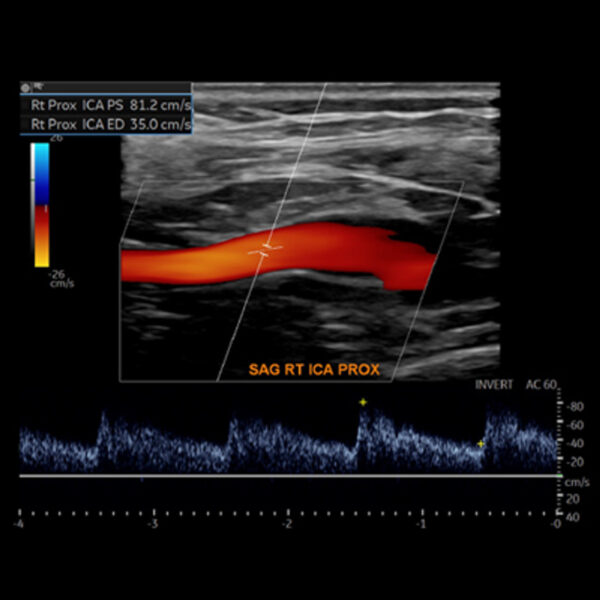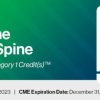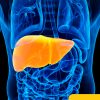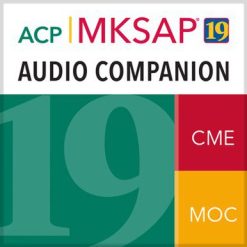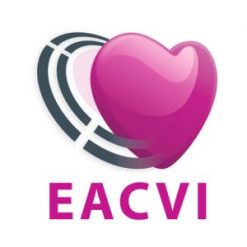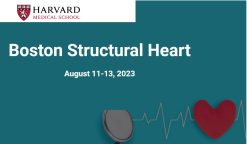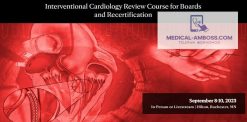Oakstone Society for Vascular Medicine Comprehensive Review of Vascular Ultrasound Interpretation and Registry Preparation 2023
Oakstone Society for Vascular Medicine Comprehensive Review of Vascular Ultrasound Interpretation and Registry Preparation 2023 This online CME program spans 40 lectures that expose you to all aspects of non-invasive vascular testing. Abundant case study materials and over 100 registry-type exam questions will help those who work within the non-invasive vascular laboratory to prepare for the RPVI examination and maintain IAC Vascular Testing continuing medical education requirements. Nationally-renowned speakers provide expanded content on vascular lab operations and ergonomics, as well as valuable insight on
Samples for Courses Can be found here : Free Samples Here!
Oakstone Society for Vascular Medicine Comprehensive Review of Vascular Ultrasound Interpretation and Registry Preparation 2023
Oakstone Society for Vascular Medicine Comprehensive Review of Vascular Ultrasound Interpretation and Registry Preparation 2023 This online CME program spans 40 lectures that expose you to all aspects of non-invasive vascular testing. Abundant case study materials and over 100 registry-type exam questions will help those who work within the non-invasive vascular laboratory to prepare for the RPVI examination and maintain IAC Vascular Testing continuing medical education requirements. Nationally-renowned speakers provide expanded content on vascular lab operations and ergonomics, as well as valuable insight on
Vascular Testing CME: “Head-to-Toe” Protocols
Format : 28 Videos + 2 PDFs
Target Audience: cardiologists, vascular medicine specialists, vascular surgeons, vascular technologists, vascular and general sonographers, radiologists
-
Information:
This online CME program spans 40 lectures that expose you to all aspects of non-invasive vascular testing. Abundant case study materials and over 100 registry-type exam questions will help those who work within the non-invasive vascular laboratory to prepare for the RPVI examination and maintain IAC Vascular Testing continuing medical education requirements. Nationally-renowned speakers provide expanded content on vascular lab operations and ergonomics, as well as valuable insight on:
-
- Imaging techniques (grayscale, color and spectral Doppler, physiological testing)
- Various testing protocols and diagnostic criteria
- A broad range of vascular pathology, both common and rare
- Fundamentals of vascular physics
- Quality improvement and patient safety
- And more…
Date of Original Release: June 30, 2023
Date Credits Expire: June 29, 2026
CME credit is obtained upon successful completion of an online activity post-test and evaluation.
2. Unique Learning Objectives
At the completion of this course, you should be able to:
-
- Recognize basic ultrasound physics concepts and their application to vascular ultrasound and physiologica testing
- Identify common imaging and Doppler artifacts encountered in the vascular laboratory
- Use grayscale imaging, color Doppler analysis, and spectral Doppler waveforms to assist in the diagnosis of arterial and venous disease
- Apply interpretation skills for diagnosis of internal carotid artery stenosis using duplex ultrasound
- Apply interpretation skills for diagnosis of venous thrombosis and venous valvular reflux using duplex ultrasound
- Use arterial duplex and physiological testing to assess severity and anatomic location of lower extremity arterial disease
- Apply standard diagnostic criteria to diagnose abdominal aortic aneurysm (AAA) and renal and mesenteric artery stenosis using duplex ultrasound
- Use color and spectral Doppler analysis to assess the patency of arterial and venous stents and following endovascular AAA repair
- Recognize uncommon and rare vascular disorders encountered in the vascular laboratory
- Use best practices for running a high quality vascular laboratory, including quality improvement program, accreditation, and prevention of work-related musculoskeletal disorder (WRMSD) among technical personnel
- Identify areas of knowledge deficit to improve preparation for the ARDMS Registered Physician in Vascular Interpretation (RPVI) examination
Intended Audience
This program is designed for cardiologists, vascular medicine specialists, vascular surgeons, vascular technologists, vascular and general sonographers, radiologists, nurse practitioners, and physician assistants.
+ Topics:
Basics of Laboratory Technology and Operations
-
Preparing for the Registry Examination – Heather L. Gornik, MD, RVT, RPVI, MSVM
-
Physics and Instrumentation I – Fredrick Kremkau, PhD
-
Physics and Instrumentation II – Fredrick Kremkau, PhD
-
Transducer Selection, Image Optimization, Spectral and Color Doppler, and B-Mode Artifacts – Ann Marie Kupinski, PhD, RVT, RDMS, FSVU
-
Quality Improvement in the Vascular Laboratory – Heather L. Gornik, MD, RVT, RPVI, MSVM
-
Fundamentals of Ergonomics in the Vascular Lab – Jill Sommerset, RVT
Cerebrovascular
-
Basics of the Carotid Duplex Examination and Criteria for Diagnosis of Internal Carotid Artery Stenosis – Heather L. Gornik, MD, RVT, RPVI, MSVM
-
Carotid Evaluation Following Stents and Endarterectomy, Interpretive Pitfalls – R. Eugene Zierler, MD, RPVI, FACS, FSVM
-
Non-atherosclerotic Cerebrovascular Disease – Duplex Findings – Daniella Kadian-Dodov, MD, RPVI, FSVM
-
Aortic Arch Vessel and Vertebral Artery Findings, Subclavian Steal – Daniella Kadian-Dodov, MD, RPVI, FSVM
-
Transcranial Doppler Essentials – Larry Raber, RVT, RDMS, RT
-
Interpretive Case Review – Carotid, Vertebral, and Subclavian Arteries – Rapid Fire Cases – Aditya Sharma, MBBS, RPVI, FSVM
Peripheral Arterial
-
Lower Extremity Arterial Physiological Testing – Ana Casanegra, MD, RPVI, FSVM
-
Lower Extremity Arterial Duplex – R. Eugene Zierler, MD, RPVI, FACS, FSVM
-
Upper Extremity Arterial Testing – Marie D. Gerhard Herman, MD, RVT, RPVI
-
Pedal Artery Duplex and CLTI Duplex Imaging – Jill Sommerset, RVT
-
Arterial Access Complications – Natalia Fendrikova-Mahlay, MD, RPVI
-
Dialysis Access Mapping and Post Procedure Evaluation – Ann Marie Kupinski, PhD, RVT, RDMS, FSVU
-
Interpretive Case Review – Physiologic Testing and Duplex of Native Upper and Lower Extremity Arteries – Rapid Fire Cases – Aditya Sharma, MBBS, RPVI, FSVM
-
Interpretive Case Review – Duplex Assessment of Arterial Bypass Grafts and Stents – Rapid Fire Cases – Ido Weinberg, RPVI, FSVM
-
Interpretive Case Review – Access Complications, Dialysis Access, Vascular Zebras – Rapid Fire Cases – Jeffrey Olin, DO, RPVI, MSVM
Abdominal
-
Renal (Native and Transplant) Duplex Ultrasound, Renal Stents – Natalie Evans, MD, RPVI, FSVM
-
Mesenteric Artery Duplex Ultrasound, Mesenteric Stents – Natalia Fendrikova-Mahlay, MD, RPVI
-
Assessment of the Aorta, Surveillance of AAA, and Follow-up of Aortic Endografts – R. Eugene Zierler, MD, RPVI, FACS, FSVM
-
Duplex Doppler Assessment of Hepatic-Portal Vasculature – Nirvikar (Nirvi) Dahiya, MD
-
Interpretive Case Review – Abdominal Imaging – Abdominal Aorta, AAA; and Endografts; Renal and Mesenteric Ultrasound – Rapid Fire Cases – Natalie Evans, MD, RPVI, FSVM
-
Interpretive Case Review – Abdominal Imaging – Aortic, Mesenteric, Renal and Pelvic Arterial and Venous Compression Syndromes, Arteriopathies – Rapid Fire Cases – Jeffrey Olin, DO, RPVI, MSVM
Peripheral Venous
-
Venous Duplex for Diagnosis of Deep Venous Thrombosis – Marie D. Gerhard Herman, MD, RVT, RPVI
-
Bare Bones for the Boards – Venous Physiological Testing – Ana Casanegra, MD, RPVI, FSVM
-
Venous Duplex for Assessment of Venous Valvular Incompetency, Mapping for Endovenous Therapies, Assessing for EHIT – Raghu Kolluri, MD, RVT, FSVM
-
Venous Duplex for Assessment of Central Veins – Karem Harth, MD
-
Interpretive Case Review – Venous Testing 1 – Rapid Fire Cases – Karem Harth, MD
-
Interpretive Case Review – Venous Testing 2 – Rapid Fire Cases – Raghu Kolluri, MD, RVT, FSVM
Mock RPVI Examinations and Additional Talks
-
Key Non-Vascular Incidental Findings Every Reader Should Know – Nirvikar (Nirvi) Dahiya, MD
-
Physics, Technology, and Instrumentation Mock RPVI Examination – Ann Marie Kupinski, PhD, RVT, RDMS, FSVU
-
Mock Examination Questions – Session I – Randy Ramcharitar, MD
-
Mock Examination Questions – Session II – Ido Weinberg, RPVI, FSVM
-
Mock Examination Questions – Session III – Aditya Sharma, MBBS, RPVI, FSVM
-
Mock RPVI Examination Questions – TCD and TCI – Larry Raber, RVT, RDMS, RT
-
Mock Examination Questions – Essentials of Accreditation, Patient Care and Safety, Quality Assurance, and Test Validation – Heather L. Gornik, MD, RVT, RPVI, MSVM
Related products
CARDIOLOGY
PULMONARY /RESPIRATORY
HARVARD MEDICINE
CARDIOLOGY

